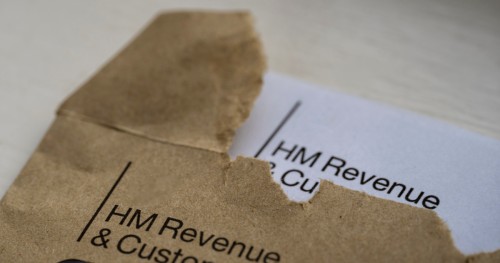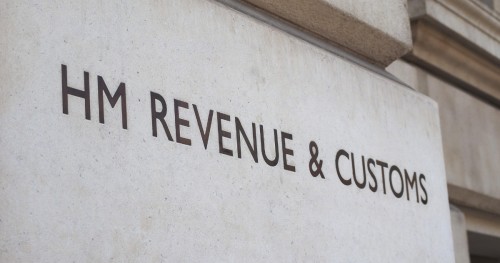Top 10 tips for self-employed people with unpaid invoices

We might be coming out of the coronavirus pandemic, but the total value of unpaid invoices owed to UK firms has climbed to an astonishing £23.4billion.
And as FreelanceUK readers will attest, self-employed sole traders are among the hardest hit, writes Adam Home, senior collections manager at Safe Collections.
Specifically, UK freelancers are on average waiting on £2,000 in cash they should have been paid for services already rendered. It can be such an untenable situation, that a quarter of freelancers told the same survey, run by WondaPay, that they are considering actually quitting self-employment for good -- as a direct result of late payments.
Three massive pains of late payment
Constantly having to chase money you should have been paid causes all sorts of problems for freelancers.
It’s a drain on time and resources. It plays havoc with cash flow (impacting your ability to pay bills and meet day-to-day living costs). And it’s a drain on you. Indeed, the sense of conflict I’ve seen it can create can often adversely affect the mental and emotional well-being of tiny traders, especially the solo self-employed.
Yet everyone obviously has the right not only to get paid for work completed in good faith, but to get paid fairly within the agreed timescale! Repeated late and non-payment cannot, and should not be ignored.
It’s not a pleasant situation to be in. But what can freelancers, sole traders and the self-employed do, when it comes to recovering monies they are owed? Here’s my top 10 tips.
1. Pick your battles
We don’t advocate letting anyone off the hook for not paying what they owe. But as a freelancer, you need to give some thought about when it makes sense to chase an overdue payment and when to keep your powder dry. As we often say before committing to assist an out-of-pocket freelancer, chasing payments takes time and effort.
The key thing is the value of any overdue invoice. If it’s £500 or £5,000, then sure, that’s money you can ill-afford to do without! But £50? You have to be careful that you don’t end up costing yourself more than the invoice is worth, especially in terms of the amount of time you put into recovery.
2. Know when to quit
Chasing debts as a freelancer is highly vulnerable to the so-called Sunk Cost Fallacy. This is where we think that because we have started something, we have to keep going harder and harder until we get a result. We all know the phrase about ‘throwing good money after bad.’
So freelancers remember, there’s a limit to what you should invest in chasing a debt. After that limit, it becomes counterproductive and only exacerbates the existing loss. After all, if your value to the business is £100 per hour, it wouldn’t take long to ‘spend’ significantly more in lost time than you are hoping to recover.
3. Put your business head on
Other factors to weigh up in deciding whether to proceed or write off the debt include the likelihood of recovering the debt due to the nature of the debtor’s business. If you suspect the client is in serious financial difficulty, you could exhaust all available options and still never get your money back!
You should also consider your future relationship with the client. If they send you a good chunk of work on a regular basis, fighting over one small invoice that they are contesting may not be the most expedient course of action. You could end up losing a lot more in future earnings by cutting your ties with them.
4. Start as you mean to go on -- direct, polite but firm
Chasing a debt doesn’t mean threatening debt collectors and legal claims the moment an invoice becomes overdue! Nine times out of 10, a late payment can be resolved with a simple email.
Most late payments are caused by poor administration on the part of the client rather than anything more untoward. A friendly email to remind them that the agreed payment period has elapsed is usually enough to jog their memory, and jolt them into paying!
5. Have your terms handy
With a polite email exchange underway, this is where setting out and agreeing clear payment terms before you started working for a client really comes into its own!
It means that you can politely, easily point the client’s accounts team in the direction of the contract that you both agreed. And if you did it properly that contract spells out when payments should be received. Just be sure to have your terms handy and readily send-able.
6. Know late payment law
At this stage if necessary, you can mention your legal right to start adding interest to the overdue amount you are owed, at a rate of 8% plus the Bank of England base rate from the day the invoice becomes late. As an unpaid freelancer in a business-to-business engagement, you also have the right to apply a one-off fixed recovery penalty.
We find that often, politely pointing out to a client your intention as a self-employed business to add these charges -- should the debt not be settled promptly, is usually enough to spur most businesses into paying.
7. Expect one of two excuses
As we say, most clients will respond to a gentle nudge should they fail to pay an invoice on time. But sadly not all! This is when chasing a late payment can become stressful.
Most cases of stubborn late or non-payment fall into one of two categories – or excuses for not paying you. Either all your attempts to chase the debt are met with a wall of silence or, the client disputes the invoice. For example, on the grounds that the work wasn’t completed as agreed or to standard.
8. Get your email reminders right -- and correctly worded
You should chase a late payment with a reminder email within one or two days of it becoming overdue.
As a rule of thumb, it’s then a good idea to repeat with another email every seven days. Each reminder should spell out the next steps if you don’t receive payment.
And those next steps, as a reminder, are:
- getting a debt recovery firm involved;
- getting a solicitor involved;
- making an application to the courts,
- possibly, eventually, issuing a winding up permission if the debtor business can’t pay. ,
9. Assuming it’s financially worth it freelancers, know when to escalate
But there’s no point in emailing, outlining possible actions and calling the debtor indefinitely. There comes a point where you have to be prepared to escalate, not just talk about escalating. In our long experience assisting the self-employed, if invoice payment hasn’t materialised after three or four reminder attempts, it’s unlikely another email will do the trick.
10. Be sure of your first port of call
Your first port of call (once you’ve decided escalation is the only way forward) is to refer the case to a trusted professional debt recovery service.
Then be aware that in the small percentage of cases where a debt collector won’t be successful, it will likely be time to look at the legal options - hiring a solicitor to act on your behalf, filing a claim for the debt in the county courts, and if necessary taking steps to enforce any judgment if it remains unpaid. But follow the steps earlier on in this piece, and hopefully such legal bother – for both you and the debtor – can be avoided.



Comment
Log in or create your account to react to the article.